Search
Remove Ads
Advertisement
Summary 
Loading AI-generated summary based on World History Encyclopedia articles ...
Search Results
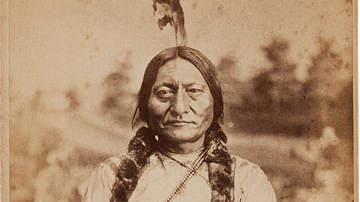
Definition
Sitting Bull
Sitting Bull (Tatanka Iyotanka, l. c. 1837-1890) was a Hunkpapa Sioux holy man, warrior, leader, and symbol of traditional Sioux values and resistance to the United States' expansionist policies. He is among the best-known Native American...
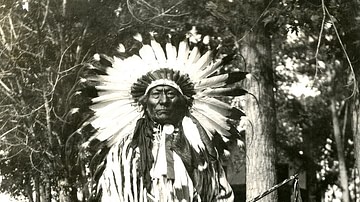
Definition
White Bull
White Bull (Tatanka Ska, l. 1849-1947) was a Hunkpapa Lakota Sioux warrior, nephew of Sitting Bull (l. c. 1837-1890), who is among the many claimed to have killed Lt. Colonel George Armstrong Custer (l. 1839-1876) at the Battle of the Little...
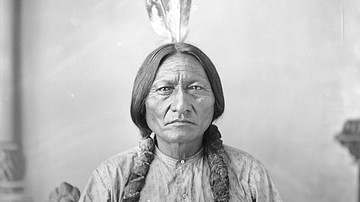
Article
Charles A. Eastman on Sitting Bull
In his Indian Heroes and Great Chieftains (1916), Sioux author and physician Charles A. Eastman (also known as Ohiyesa, l. 1858-1939), includes a brief biography of the Sioux chief Sitting Bull (l. c. 1837-1890). While some of Eastman's claims...

Definition
Colonel Tye
Colonel Tye (c. 1753-1780) was an African-American Loyalist leader who commanded one of the most effective guerilla forces of the American Revolutionary War (1775-1783). Born into slavery, he escaped in 1775 and joined the British cause...
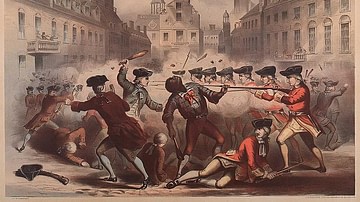
Article
African Americans in the American Revolution
On the eve of the American Revolution (1765-1789), the Thirteen Colonies had a population of roughly 2.1 million people. Around 500,000 of these were African Americans, of whom approximately 450,000 were enslaved. Comprising such a large...
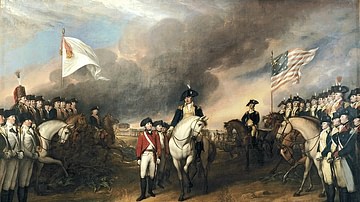
Definition
American Revolutionary War
The American Revolutionary War (1775-1783), or the American War of Independence, was a conflict between Great Britain and its 13 North American colonies, who declared independence as the United States of America. Initially a rebellion within...
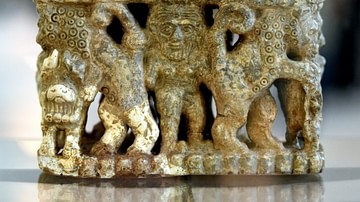
Article
Gilgamesh and the Bull of Heaven
Gilgamesh and the Bull of Heaven is a Sumerian poem relating the event, now famous from The Epic of Gilgamesh, in which the goddess Inanna/Ishtar sends the celestial bull to attack Gilgamesh after he has rejected her advances. The epic changes...
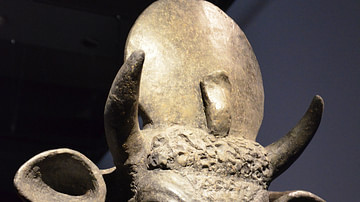
Definition
Apis
Apis was the most important and highly regarded bull deity of ancient Egypt. His original name in Egyptian was Api, Hapi, or Hep; Apis is the Greek name. He is not, however, associated with the god Hapi/Hep who was linked to the inundation...

Definition
War in Ancient Times
The word 'war' comes to English from the old High German language word Werran (to confuse or to cause confusion) through the Old English Werre (meaning the same), and is a state of open and usually declared armed conflict between political...
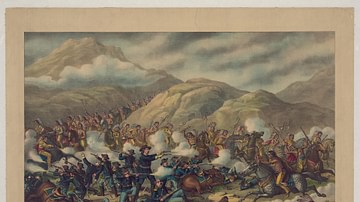
Definition
Battle of the Little Bighorn
The Battle of the Little Bighorn (25-26 June 1876) is the most famous engagement of the Great Sioux War (1876-1877). Five companies of the 7th Cavalry under Lt. Colonel George Armstrong Custer (l. 1839-1876) were wiped out in one day by the...